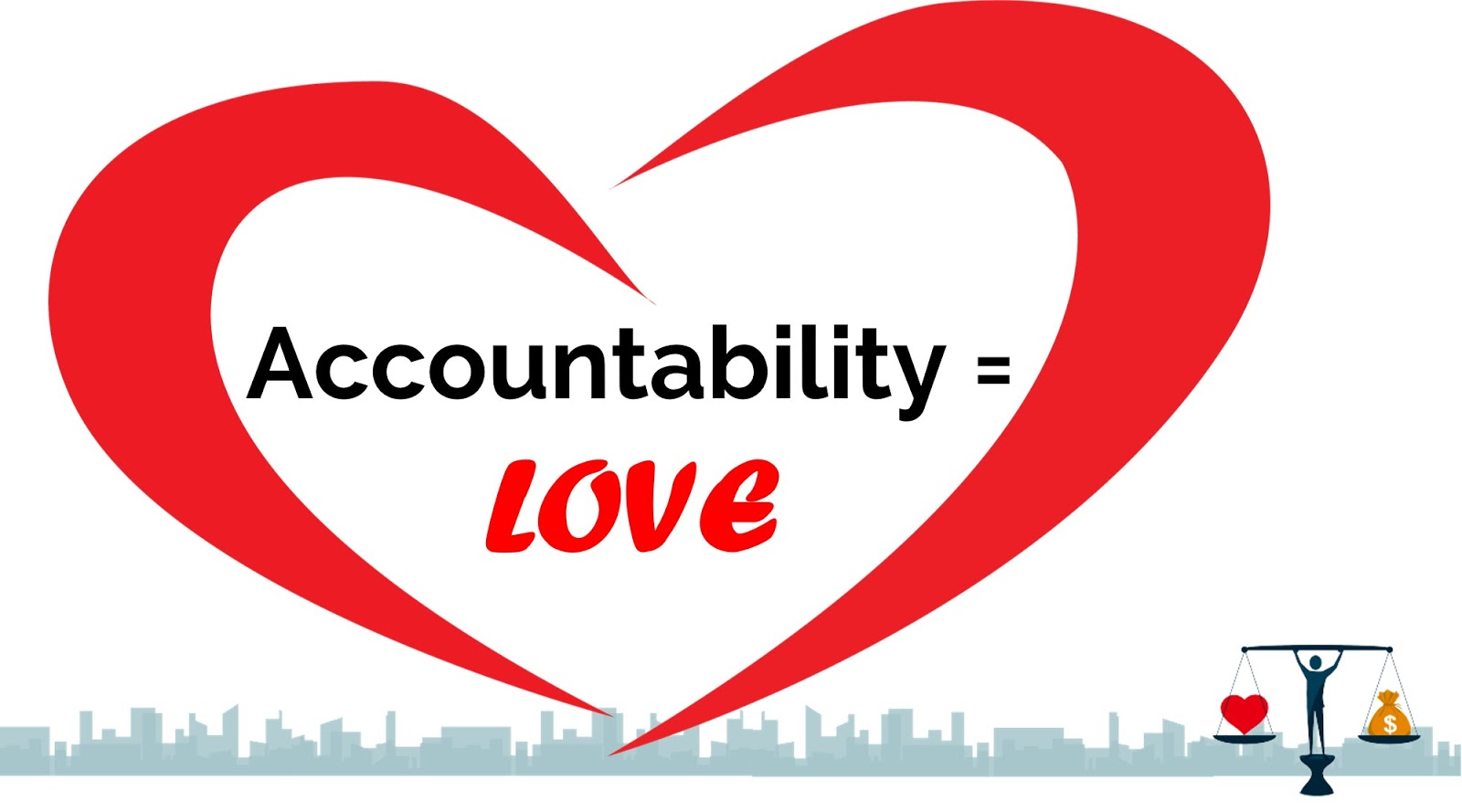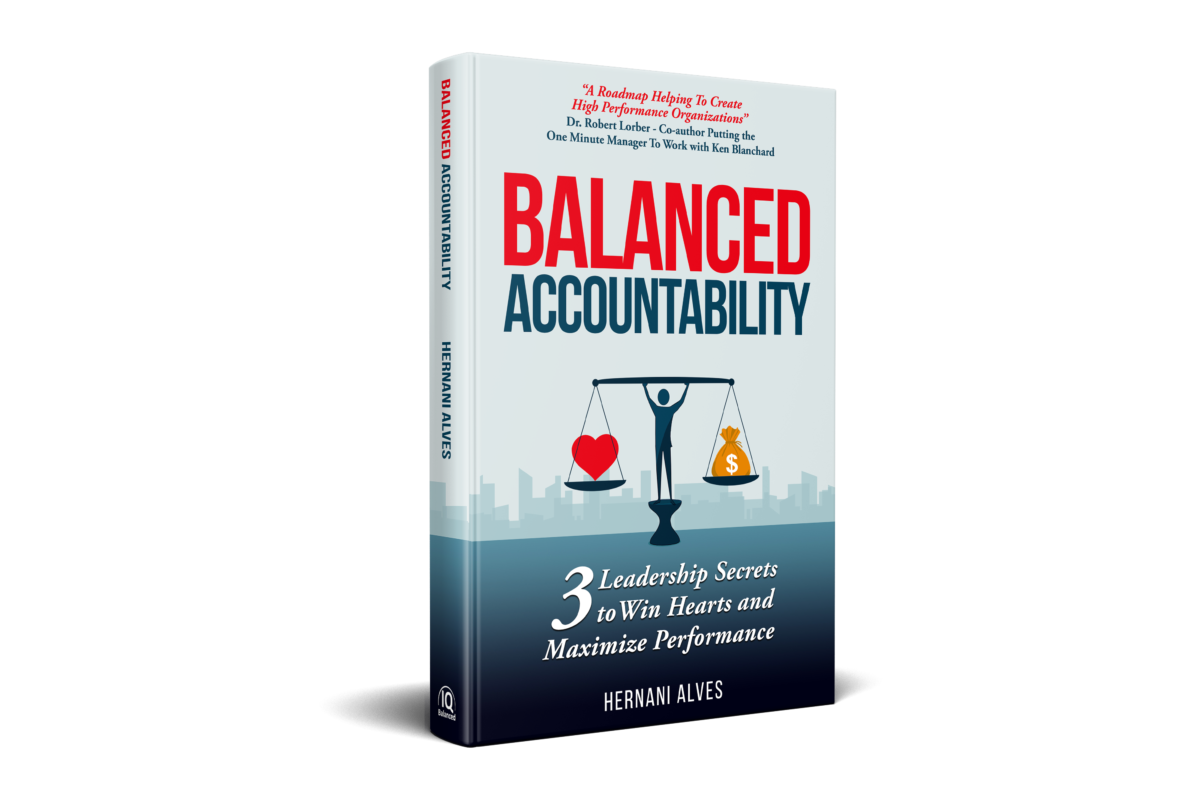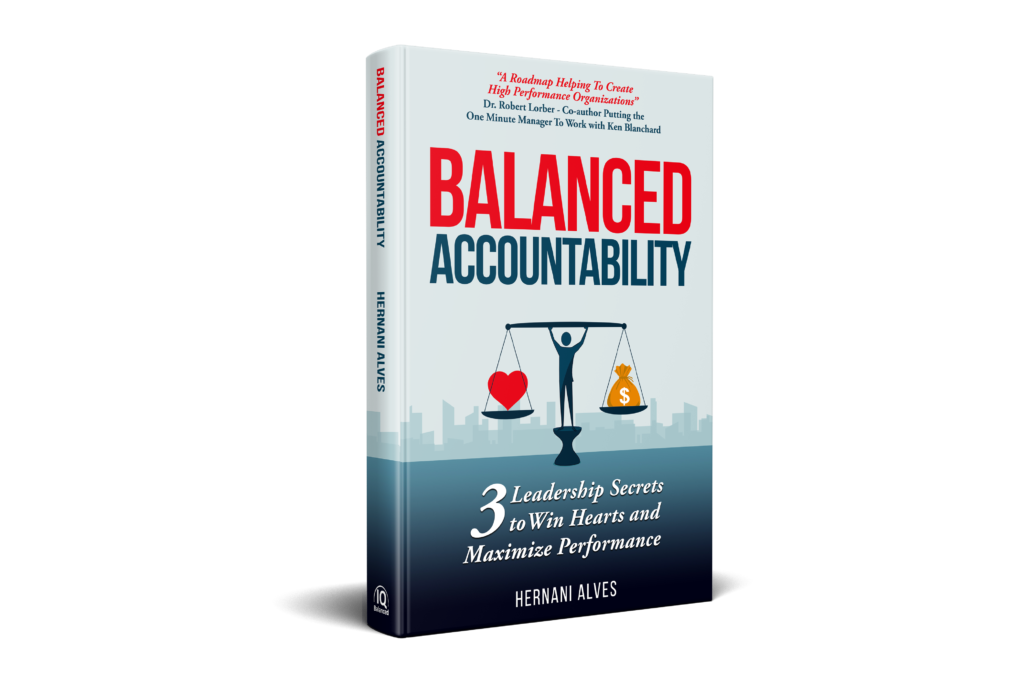How do you show accountability? Accountability = Love

How do you show accountability? Accountability = Love. Embracing love and accountability is vital. So my question to you is, are you comfortable telling people that you love them, or is it a challenge? For some, even just praising or thanking others is a struggle. If you relate to that, it’s ok! It’s natural.
“Love is loyalty, love is teamwork, love respects the dignity of the individual.” – Vince Lombardi, former NFL coach for whom the Super Bowl trophy was named after.
The former Green Bay Packers coach was not only correct in theory, but also in practice.
Lombardi knew all about the power of love. He loved his players and worked hard to make sure they were victorious. He once said, “They may not love you at the time, but they will later.” Even years after leaving the team, Bart Starr, Packers quarterback from 1956 to 1971, can recall what Lombardi said at his very first team meeting: “Gentlemen, we’re going to relentlessly chase perfection.”
Human Needs Don’t Change on the Clock
Lombardi’s respect for his players brought out the best in his team. He understood that most humans, even big burly football players, have two desires in common: to love and be loved.
We’re ok with this in everyday life. We love our families, we love our homes, we love movies, we love our sports teams. However, something weird happens when we walk through our office doors: the thought of love disappears.
We do desire it at work, though. Leaders want their employees to love working for them, or at least love exceeding their goals. If you’re going to see the love in your employees, then you need to step into something of a parental role. Research published in Parenting Science shows that “The authoritative parenting style is an approach to child-rearing that combines warmth, sensitivity, and the setting of limits. Parents use positive reinforcement and reasoning to guide children.” This is precisely what it means to be a leader for your team.
Commitment and Working Through Discomfort
Love is about commitment. When you think about it, they go hand in hand. There’s a misconception that showing love or vulnerability makes us soft, and when you let your guard down, people will support you. Showing your humanity gives others permission to as well. When I began doing this, my employees hopped right on board. They knew that I loved them, and in turn, I knew they wouldn’t let me down. If you want to see an improvement at work, you need to commit to it, which means enacting love.
Using the Four “L” Word at Work
Embracing love and accountability is vital. So my question to you is, are you comfortable telling people that you love them, or is it a challenge? For some, even just praising or thanking others is a struggle. If you relate to that, it’s ok! It’s natural.
I encourage you to get uncomfortable and practice showing your feelings. It’s easy, and you can start by using the term to show gratitude. For example: “I love how you helped that customer” or “I love your commitment to our team.”
If this whole idea makes you want to jump ship, consider your past efforts in fixing workplace problems. It’s time for a new approach, one that is rooted in love.
“Commitment is at the core of successful entrepreneurial ventures and remains paramount in every meaningful personal relationship. If you want to be a leader and make a deep impact on the world, a great start is with Balanced Accountability. This book will give you the tools to lead your team and create a high performing culture. Hernani shares his touching and insightful story while shedding light on real-world business challenges.”
—Mark Haney, Founder of Haney Business Ventures, Mark Haney Radio Show and Allegiant Giving Charitable Organization which Invests in Combat Wounded Veterans.

How To Be a Better Leader: Successful Accountability

How to be a better leader: Successful Accountability. Much of my success is due to what I’ve learned from the people around me. Growing up and seeing my parents find success from scratch taught me that hard work can pay off, but the lesson of how to work with others along the way was more subtle. I had to fail and try again with that very first team before I could move on to become a leader. I had to hold myself, above anyone else, accountable.
Adversity Makes YOU Stronger
Hard work and sacrifice have always been themes in my family’s story. My father emigrated from the Azores to Angola, then back to the Azores, and eventually to the United States. He worked his way up from alone and homeless to a married father of five and the owner of eight successful businesses (although not all at once). With my mother, he worked himself out of poverty to upper class….twice.
Success Amid Sacrifice
In 1975, three months after I was born, civil war broke out in my home of Angola. One morning my parents heard frantic knocks and the warnings of a neighbor to leave our home immediately because the guerilla army was on their way. My parents had just enough time to grab the kids and a bottle of milk before fleeing. That civil war took the lives of over 500,000 people and displaced over a million – including us. We stayed at a Red Cross refugee base for six months before escaping back to the Azores. We were lucky, too – many people lost their lives at that camp despite the best efforts of the Red Cross. We are so thankful for the Red Cross and everything they did for us.
My parents had lost everything and were forced to start over. We eventually ended up in the states, where my father started a fish market, then a dairy farm – two ventures that allowed him to once again provide comfort and opportunity for his family. He had started from nothing, worked his way up, lost it all, and worked his way up again – always determined, and always ready to put in whatever effort it took.
A Failing Success
Growing up hearing these stories gave me confidence that success was absolutely possible for anyone under any circumstances. So when I was 23, I got a part-time job at a mattress store called Sleep Train. I assumed if I worked hard, success would inevitably follow. I was still in college when I went full time, and six months later I was managing my own store.
The location I took over wasn’t flashy by any means. The staff was unhappy, and sales were lousy, but I was determined. I did everything by the book. I grilled my employees on any and everything, from serving customers to the correct way to vacuum the store. Within that same quarter we were making record-breaking sales which felt incredible. I, of course, attributed this to my great supervising skills, but unfortunately, my team disagreed. We were seeing excellent results, but the stifling way I managed earned me a terrible nickname behind my back. It’s one of the worst names you can ever call a leader. I put the name in my new book – see the link below!
Transformational Change
Despite the staff difficulties, my on-paper accomplishments had earned me the company’s President’s Club Trip – an all-expenses-paid vacation to Maui. On the way, I picked up the book “Whale Done: The Power of Positive Relationships” by Ken Blanchard, in the hopes that it would help me with my store’s morale issue. The book focuses on magnifying positives at work and doing things right. It was an excellent read – one that profoundly changed the way I looked at management. I realized that my employees’ attitudes weren’t the problem. I was the problem – and a big one. I micromanaged and withheld positive reinforcement, and as a result, no one wanted to work with me.
When I got back from vacation, I brought the lessons I’d learned with me. I began praising my staff for small things done well even if they didn’t get it quite right. I offered rewards if we exceeded sales targets, and invited their loved ones to join in on the celebration. Step by step, our store’s morale (and numbers!) continued to improve. This was only possible when I realized that success comes when you stop “managing” your employees and start leading.
No one likes to be managed anyway, right? A manager is a whip, a stick. A leader, however, is a guide. It’s a different mindset that inspires, encourages, and ultimately gets different results.
Finding Success for Myself and Others
I honed the techniques I learned and went on to lead bigger departments and mentor many employees. So much, that I went from a part-time employee to becoming a Sales Executive for a company doing over $3 billion in sales.
I left in 2017 to become the founder and CEO of Balanced IQ, a leadership consulting business. I teach the same techniques I used to turn my business and life around. Throughout my career, I’ve used these strategies with everyone from teens in their first part-time job to high-performing sales executives. Time and time again, their successes have blown me away.
Much of my success is due to what I’ve learned from the people around me. Growing up and seeing my parents find success from scratch taught me that hard work can pay off, but the lesson of how to work with others along the way was more subtle. I had to fail and try again with that very first team before I could move on to become a leader. I had to hold myself, above anyone else, accountable.
“True accountability isn’t a punishment to employ when things go awry; when practiced with balance and love, it’s a way to unleash peak performance in ourselves and others. And, lucky for us, Hernani Alves lays out the principles and method for doing just that. Balanced Accountability should be required reading for every manager and entrepreneur.”
—Steve Farber, Founder, The Extreme Leadership Institute; author, The Radical LEAP, Greater Than Yourself, and Love Is Just Damn Good Business

What does it mean to have accountability? Changing The Perception of Accountability

What does it mean to have accountability? Changing The Perception of Accountability. Unfortunately, in business, this concept has taken on a negative connotation. Research shows that people perceive accountability as a consequence of wrong-doing when, in reality, it is a tool to level the playing field, reward hard work, and create autonomy. It can and should be used to encourage improved results and morale, not as a disciplinary measure. This misunderstanding is at the heart of so many workplace problems. If you have noticed high turnover on your team or just a lack of workplace engagement, I truly believe it can be linked to you, the leader, not harnessing the power of effective accountability.
As a kid, good work ethic didn’t come naturally to me. However, unlike many of my peers, my responsibilities had real-world consequences. As refugee migrants from Angola, my family bounced around before landing in Idaho, where my dad, ever the entrepreneur, started a dairy farm. My parents were driven and thorough – two standards for which they held me as well. At the time, I resented this. However, one of the biggest favors my parents did for me was to hold me accountable. It has shaped me greatly both in parenthood and in business.
Cow Number One was a special cow.
She was, as the number suggests, the first calf ever born on our farm. By the time Cow Number One was all grown up, I was a scrawny nine-year-old, 75 pounds soaking wet and, despite my lacking strength, expected to do my part on the farm. At that age, that meant milking the cows after school. I’ll never forget the first time I tried to milk Cow Number One.
She was resisting heavily, and I was young, tired, and upset by her unwillingness to let me do my job. Instead of finishing the task, I opened the gate so she could leave and I could move on. However, by not milking her, I put her at risk for infection and endangered her calf by denying it its food. My father was furious.
I was punished of course, and afterward, he had me put a device on the cow to hold her hips and stop her from resisting so I could finish the chore. Not only because it needed to be done, but because he knew that I needed to learn how important it is to follow through. He wanted to show me that I matter – my work matters and that doing a job right the first time is an invaluable trait. In that moment, he taught me accountability. It was this experience, more than any other, that taught me that love and accountability are intertwined.
Bringing Accountability to Work
When I was promoted to my first management position, I found the new role more difficult than I’d anticipated. Despite my sales numbers exceeding expectations, I was having trouble recruiting, maintaining customer service, and cultivating a positive work environment. How my employees referred to me when I wasn’t around was a good indication of my lacking leadership. Hint: it wasn’t pretty! Low employee engagement is a common problem in offices. What I failed to realize, though, is that these issues are a reflection of the person in charge. It demonstrates that while they may be managing, they are not leading.
This epiphany inspired major changes in the way that I interacted with my employees. I stopped “managing” and started using accountability to improve every aspect of my team. I was able to overcome my own faults as a part-time employee, to becoming an executive of a $3 billion company and eventually received a Best Leader award from my team—my most cherished accolade.
An Act of Love
Just like my father used accountability to teach me autonomy and self-value, I used accountability to help my team flourish and recognize their individual importance in the workplace. It’s easy to forget that this is a most basic human desire – to know that our contribution makes a difference. Through accountability, this fact becomes clear.
It’s never too late to adjust your leadership strategy to incorporate this tool. It’s time to show your employees that you genuinely care about their success. That your insistence on accountable behavior is not out of retribution, but to set them up for prosperity. I continue to do this for those that I work with through love and appreciation – exactly how I learned it from my father.
“Hernani’s work on Balanced Accountability drives every aspect of an organization’s success. Here is a roadmap helping to create high performance organizations. Having clear accountability is a crucial element to bring out the best in people and help drive your company to exceptional business success.”
—Dr. Robert L Lorber, CEO of The Lorber Kamai Consulting Group, Co-author Putting The One Minute Manager To Work with
Ken Blanchard

